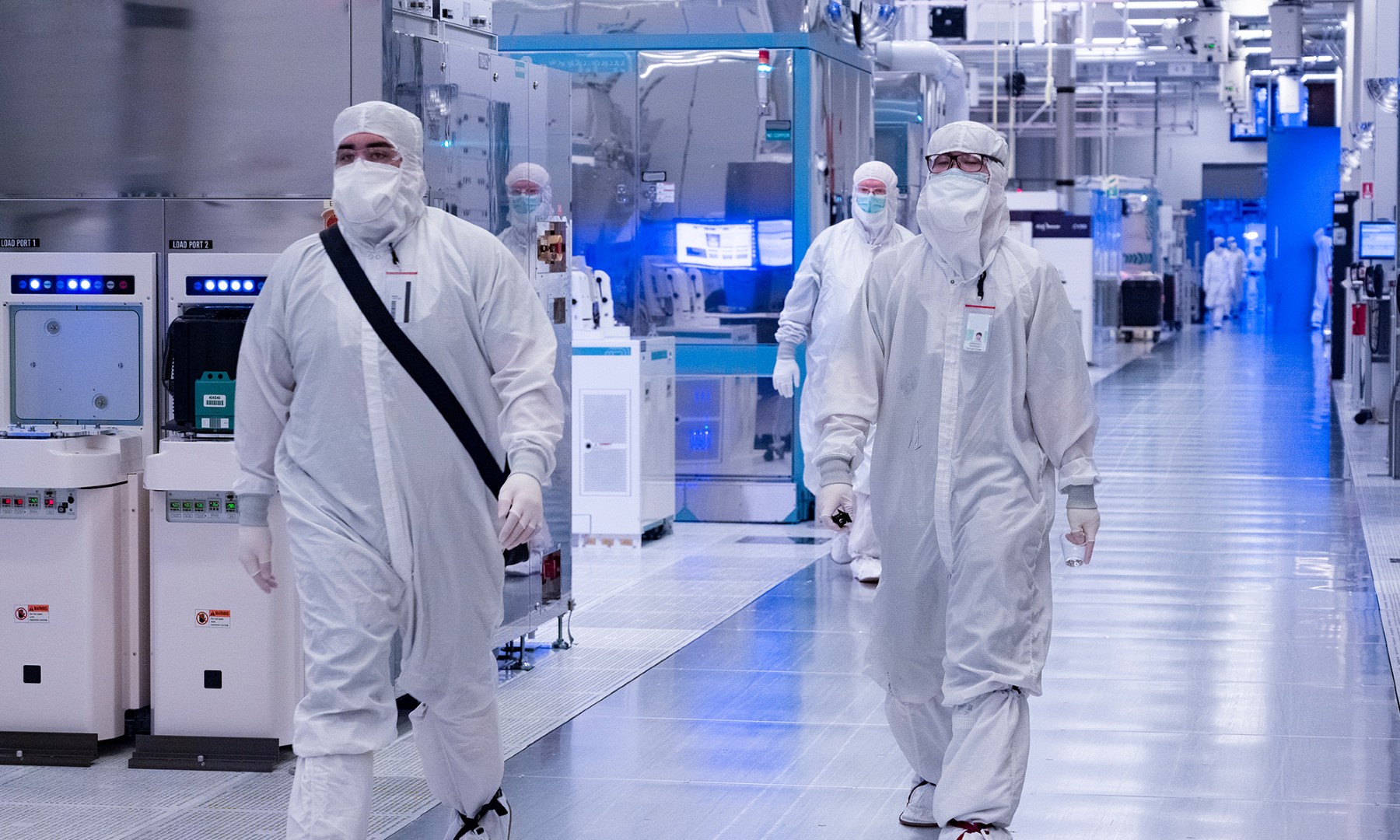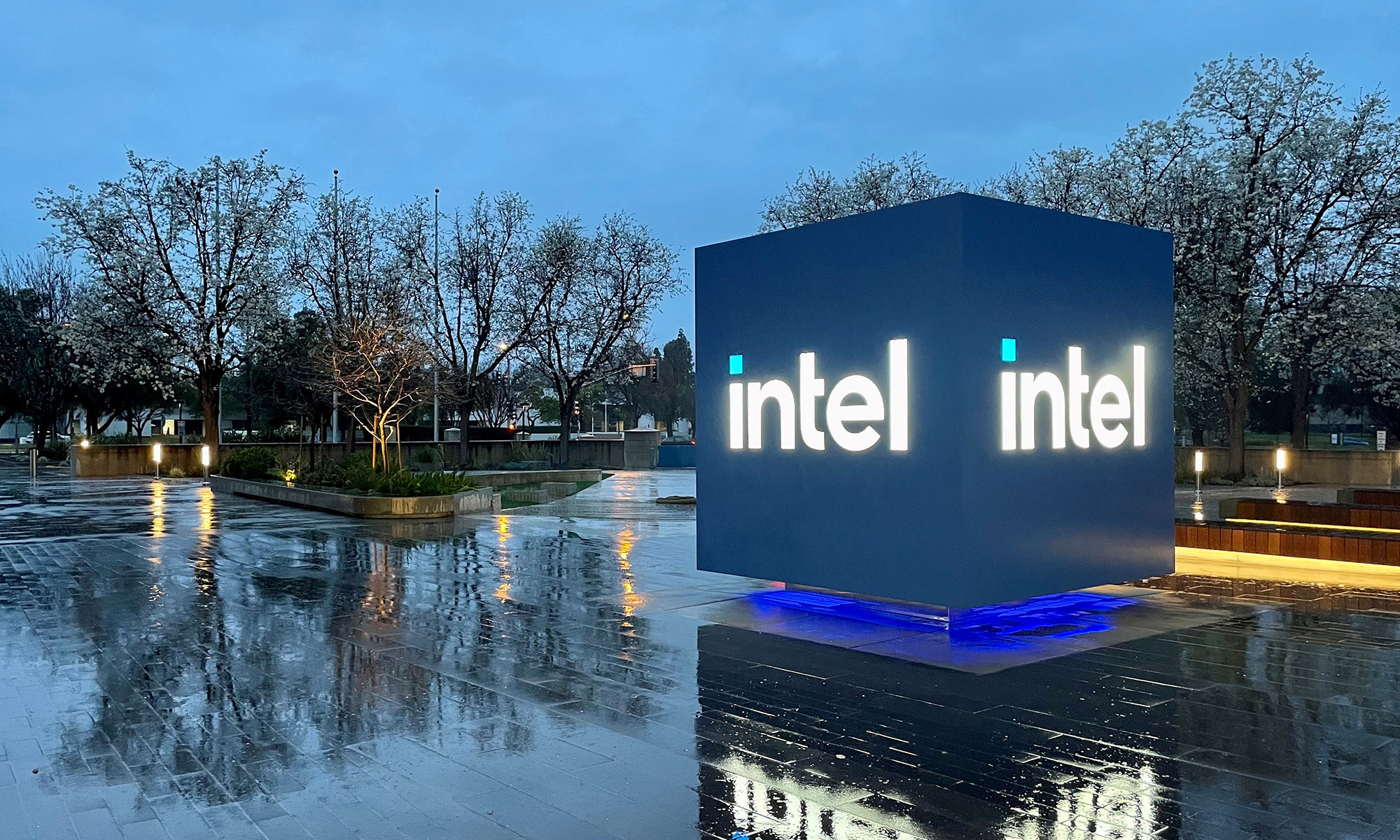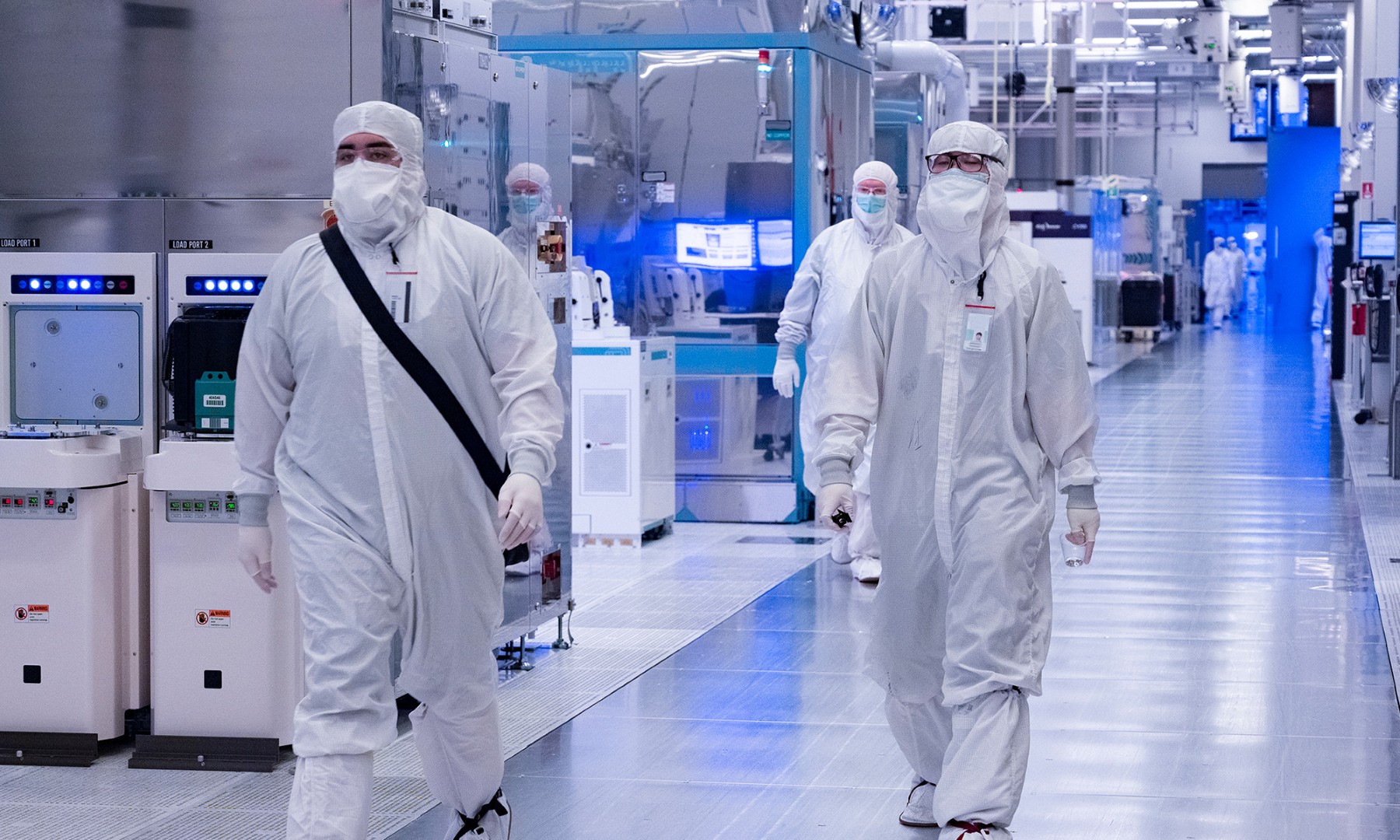The Dow Jones Industrial Average (^DJI +1.21%) soared on the first trading day of 2020, up 0.6% at 11:30 a.m. EST. The Dow was up around 22% in 2019.
Helping to drive Thursday's gains were two tech giants, Microsoft (MSFT 2.31%) and Intel (INTC +11.72%). Both stocks performed well in 2019, but each company will face some challenges in 2020 that could jeopardize an encore performance.
Microsoft starts 2020 on a strong note
Microsoft had a great 2019. Revenue and earnings soared, thanks to the resilience of Office and the incredible growth of the company's cloud business. Microsoft secured the JEDI cloud contract from the U.S. Department of Defense, worth potentially $10 billion over 10 years. And the stock gained 55%, pushing the company's market capitalization well above $1 trillion.

Image source: Getty Images.
Shares of Microsoft were up another 1.1% Thursday morning, a solid start to 2020.
While there's every reason to believe Microsoft will continue to thrive in the cloud this year, Alphabet's (GOOG +1.93%) (GOOGL +2.01%) Google is doubling down on its efforts to relieve Microsoft of its No. 2 position in the cloud infrastructure market. While Google has reportedly toyed with abandoning the market entirely, the company now has eyes on being a top 2 cloud infrastructure provider by 2023.
If Google is serious about winning in the cloud, the company will likely need to dramatically expand its sales and marketing headcount while getting aggressive on price to close deals. This could trigger a price war, cutting into Microsoft's profits as it's forced to reduce prices.
After an epic rally in 2019, Microsoft stock is far from cheap. Based on the average analyst estimate for fiscal 2020, shares of the software giant trade for just shy of 30 times earnings. That premium might be justified by the company's growth prospects, but any sign of trouble could send the stock tumbling.
Intel rises despite AMD optimism
For many years, chip giant Intel faced little competition in its core PC and server chip businesses. But rival Advanced Micro Devices (AMD +7.71%) started an assault on Intel's empire when it launched chips based on its Zen architecture in 2017. AMD's Ryzen PC chips and EPYC server chips are now whittling away at Intel's market share, forcing Intel to slash prices on some of its chips to remain competitive.
Optimism for AMD continues to build. On Thursday, Nomura reiterated a buy rating on the stock and boosted its price target to $58. Nomura expects AMD's competitive position to continue to strengthen in 2020.
While Intel is facing intense competitive pressure, the stock hasn't missed a beat. Shares surged 27.5% in 2019, and they were up another 1.5% Thursday morning. This performance is despite Intel's years-long delay getting its 10nm manufacturing process up and running for volume production. This delay has allowed AMD to erase its manufacturing disadvantage -- AMD's latest Ryzen and EPYC chips are built using TSMC's 7nm process.
Intel will be aiming to protect its market share in 2020, which likely means more aggressive pricing, which could cut into margins. But Intel will also be opening a new front in its battle with AMD. Intel is working on its own discrete graphics cards, with a planned launch in 2020. The graphics card market is currently a duopoly, with NVIDIA the leader and AMD in the No. 2 position. Intel could shake things up if its graphics cards are competitive, creating a new revenue stream for the company.
While Intel stock has largely shaken off the AMD threat so far, that could change in 2020 if Intel can't blunt AMD's momentum.










